Biography
Friedrich Nietzsche - German philosopher, thinker, poet and even the composer. His ecademic doctrine was widely distributed not only in the scientific and philosophical community, but also far beyond. Nietzsche questioned the key principles generally accepted in the XIX-XX centuries of culture and morality, public and political relations. The concept of philosopher and to this day causes a lot of disputes and disagreements.Childhood and youth
Friedrich Wilhelm Nietzsche was born on October 15, 1844 in the village of Rökken, located near Leipzig. His father, Karl Ludwig Nietzsche, as well as both His grandfather, was a Lutheran priest. A few years later, the boy had a sister Elizabeth, and in a couple of years - Brother Ludwig Josef. The younger brother Friedrich died in 1849, and his sister lived a long life and went to the world other in 1935.
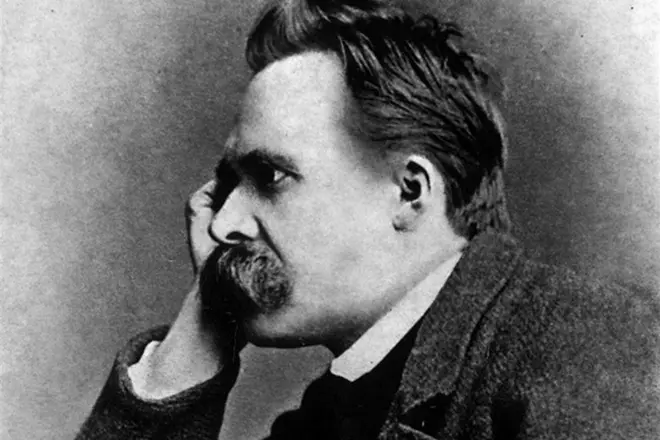
Soon after the birth of the younger son Karl Ludwig Nietzsche died. Caring for the upbringing of Friedrich completely took over his mother. So it lasted until 1858, when the reigning young man went to receive education in the prestigious gymnasium "Poffort". The study time in the gymnasium has become a fateful for Nietzsche: there he first began to write, carried away by reading the ancient texts and even experienced an overwhelming desire to devote himself to music. In the same place, Friedrich met the works of Bairon, Schiller, Höldderlin, with the works of Wagner.
In 1862, Nietzsche began training at the University of Bonn, choosing philology and theology. Student life soon bored with a young student; In addition to this, he did not have a relationship with classmates, which he tried to instill a progressive worldview. Therefore, Friedrich soon transferred to the University of Leipzig. Once, while walking around the city, he accidentally wandered into the bench of old books and acquired the work of "Peace as a Will and the presentation" Arthur Shopenhauer. The book was very impressed by Nietzsche and had an impact on his formation as a philosopher.
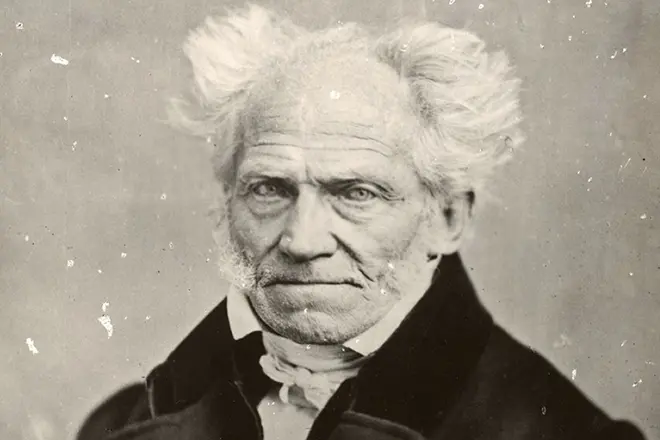
The study of Friedrich at the Faculty of Philology in the University of Leipzig took place brilliantly: already at the age of 24, the guy was invited to teach classic philology in the status of a professor at the Basel University. It was the first case in the European Higher Education system, when such a young scientist was allowed to obtain the status of a professor. Nevertheless, Nietzsche himself did not receive great pleasure from study, although he did not refuse to build a professorship career.
However, the philosopher has long worked as a teacher. Standing at this post, he decided to abandon Prussia's citizenship (Basel University is located in Switzerland). Therefore, in the Franco-Prussian War, held in 1870, could not participate in Nietzsche. Switzerland in this confrontation occupied a neutral position and therefore allowed the professor only work by Sanitar.
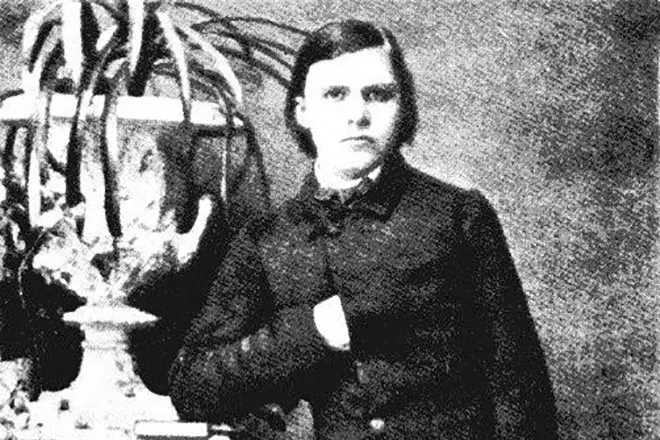
Friedrich Nietzsche since childhood did not differ strong health. So, in the eighteen age, he suffered from insomnia and migraine, thirty years old, in addition to this, practically landed and began to experience problems with the stomach. He completed the work in Basel in 1879, after which he began to receive a pension and closely engaged in writing books, without ceasing to struggle with the disease.
Philosophy
The first book of Friedrich Nietzsche was published in 1872 and wore the name "Birth of the tragedy from the Spirit of Music." Prior to this, the philosopher sent a number of scientific articles to publication, but there was no full-fledged books yet. His first serious work consists of 25 chapters.
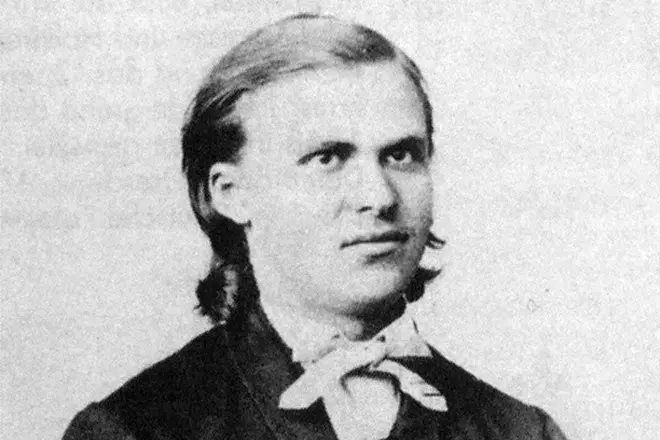
In the first 15, Nietzsche is trying to establish what is a Greek tragedy, and in the last 10 - tells and talks about the Wagner, with whom he met and was friends for some time (until the composer accepted Christianity).
"So spoke Zarathustra"
No other product of the philosopher can apply for the level of popularity of the book "So spoke Zarathustra." The main ideas for their famous work by Friedrich Nietzsche was received by traveling to Rome at the end of the XIX century. There he met the writer, a physician-therapist and philosopher Lou Salome. Nietzsche found a pleasant listener in it and was fascinated by the flexibility of her mind. He even tried to make her proposal, but Lou Salome chose friendship.
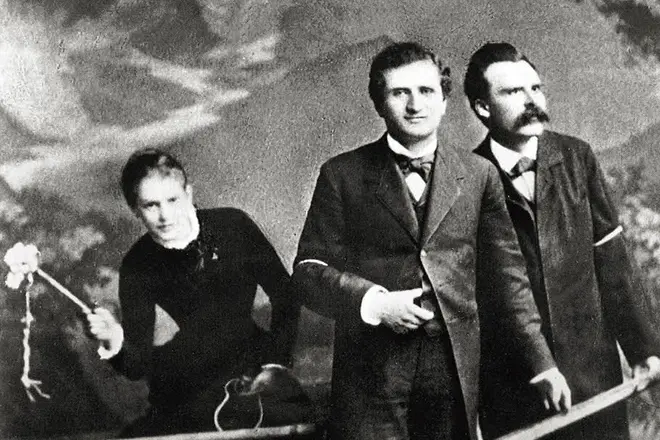
Soon Nietzsche and Salome quarreled and never communicated. After that, Friedrich wrote the first part of the labor "so said Zarathustra", in which modern researchers accurately guesses the impact of the spiritual friend of the philosopher and ideas about their "perfect friendship". The second and third part of the work saw the light in 1884, and the fourth appeared in the printed version in 1885. Her Nietzsche issued in the amount of 40 pieces for his funds.

The style of this work is changing as the story: it turns out to be poetic, then comic, then new to poetry. In the book, Friedrich first introduced such a term as superhumans, and also began to develop the theory of will in power. At that time, these ideas were worn weakly, and afterwards he developed his concept in the works "on the side of good and evil" and "to the genealogy of morality". The fourth book of the work is devoted to the story about how Zaptracks ridiculed him hated admirers of his own teaching.
Will to power
Almost all the writings of the philosopher passes morality about the will to power as a basic concept of his theory. According to Nietzsche, the dominance is a root cause of nature, the primary acquisition, as well as a way of existence. In this regard, Friedrich contrasted the will to power setting goals. He spoke that the choice of the goal and movement to it can already be called a full-fledged act.Death of God
Frederick Nietzsche was actively interested in issues of religion and death. "God died" is one of his famous postulates. This statement of the philosopher explained as an increase in nihilism, which caused the investigation of the depreciation of the overseas foundations of life directions.
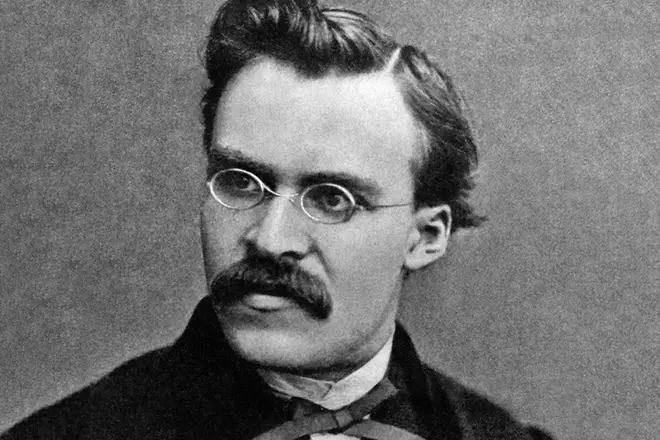
The scientist also criticized Christianity for the fact that life in the real world, this religion prefers being in the world by the world. This topic was dedicated to the book "Antichrist. Curse of Christianity. " For the first time, Friedrich Nietzsche expressed his nihilistic position in the "Human Human" book, he saw the light in 1876.
Personal life
Friedrich Nietzsche repeatedly changed his views on the female floor, so the popularity of his quotes "Women - the source of all stupidity and nerazumia in the world" does not fully reflect his fullests. So, the philosopher managed to visit the men's laminate, and feminist, and anti-heartminist. At the same time, his only love was probably Lu Salome. There is no information about the philosopher's relationship with other women.
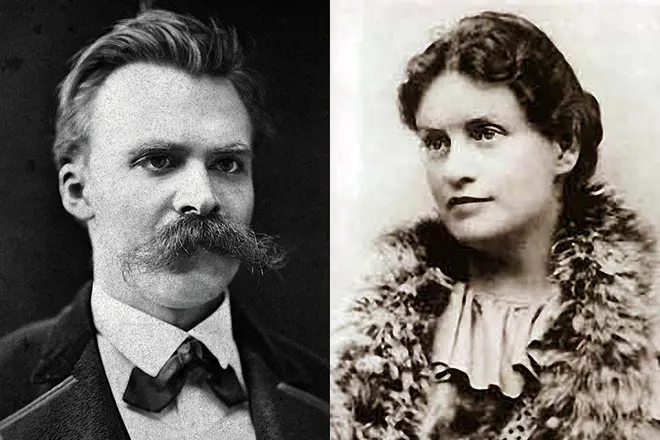
Over the years, the biography of the philosopher has been closely related to his sister Elizabeth, who cared for his brother and helped him. However, gradually the disorder began in this relationship. Has Elizabeth Nietzsche became Bernard Ferster, one of the ideologues of the anti-Semitic movement. She even left with her husband to Paraguay, where supporters of this movement intended to create a German colony. Because of the monetary difficulties, Ferster soon committed suicide, and the widow returned to his native country.
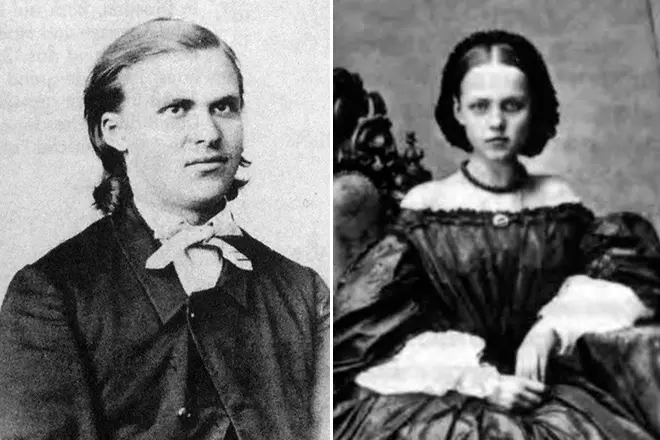
Nietzsche did not share the anti-Semitic sisters and criticized her for such a position. The relationship between brother and sister was improved only by the end of the life of the latter, when he, weakened disease, needed help and care. As a result, Elizabeth was able to manage the literary works of his brother. She sent the works of Nietzsche to publication only after making their revows, as a result of which some provisions of the teachings of the philosopher were distorted.
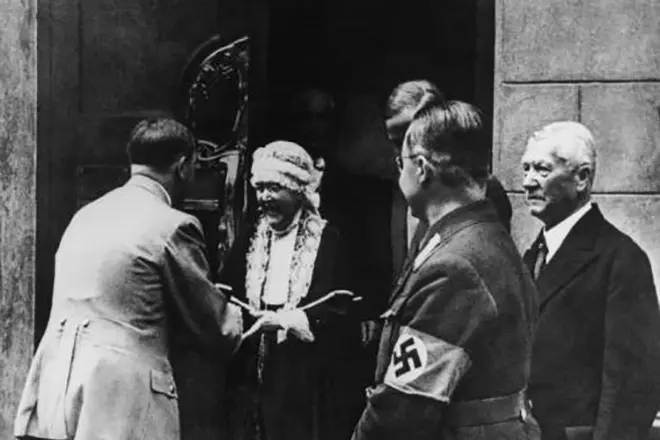
In 1930, Elizabeth Ferster-Nietzsche supported the Nazi government and Pigseed Hitler to become an honorary guest of the Nietzsche Archive Museum, which she created. The leader of the fascist movement was pleased with the visits and appointed the sister of the philosopher life pension. This partly became the reason that Nietzsche is often associated in the minds' minds with a fascist ideology.
Death
The philosopher was often incomprehensible both close people and a general public. His ideology began to gain popularity only at the end of the 1880s, and at the beginning of the 20th century his work was translated into many languages of the world. In 1889, the creative work of Friedrich Nietzsche ceased due to the turbidity of the reason.
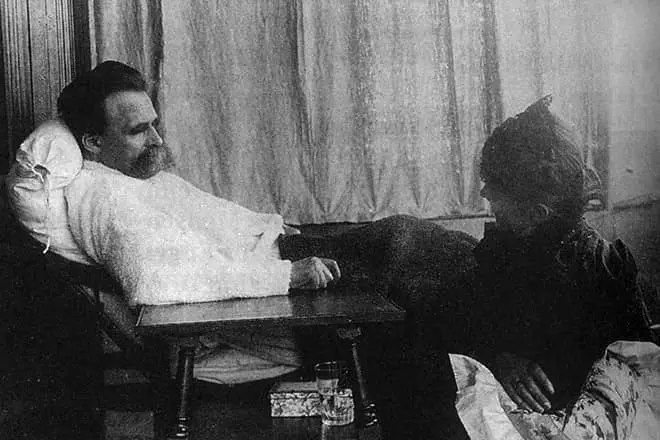
There is an opinion that the philosopher shocked the horse beating a scene. This seizure and caused the progressive mental illness. The writer spent the last months of his life in the Basel Psychic Hospital. After some time, the elderly mother took him to the parent house, but soon she died, because of what the philosopher received an apoplexy.
Nietzsche died on August 25, 1900.
Bibliography
- "Birth of tragedy, or elling and pessimism"
- "Invoyed reflections"
- "Human, too human. Book for free minds »
- "Morning dawn, or thoughts about moral prejudices"
- "Cheerful science"
- "So spoke Zarathustra. Book for all and for anyone "
- "On the other side of good and evil. Prelude to the philosophy of the future "
- "To the genealogy of morality. Polemical Overall
- "Casus Wagner"
- "Twilight idols, or as philosophy hammer"
- "Antichrist. Curse Christianity "
- "ECCE HOMO. How become ourselves?
- "Will to power"
